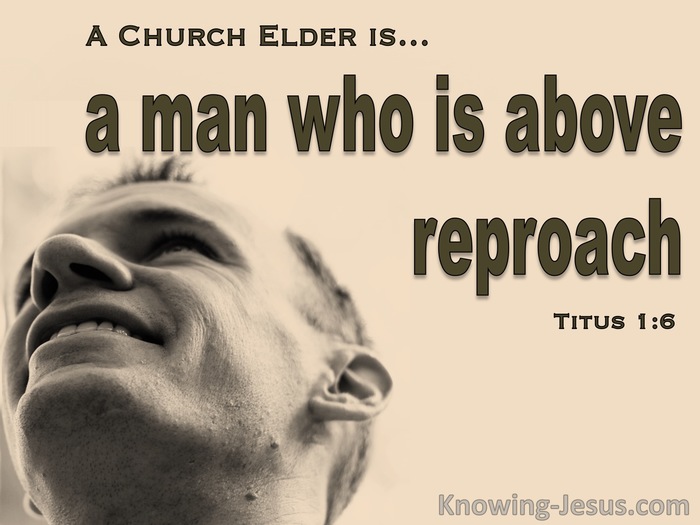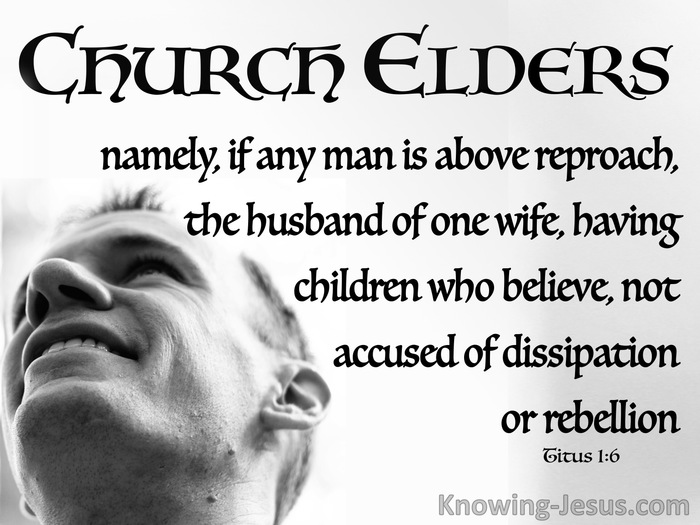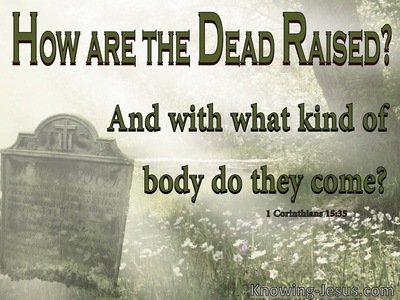◄ What Does Titus 1:6 Mean? ►
namely, if any man is above reproach, the husband of one wife, having children who believe, not accused of dissipation or rebellion.
Titus 1:6(NASB)
Verse of the Day
Paul was commanded by God, our Saviour, to carry out a unique mission as Christ's apostle to the Gentiles - and he chose certain men to have oversight of the setting up of local churches around Asia Minor.
Those first few years must have been quite problematic, as the fledgling Church sought to establish itself. They did not have the benefit of the written New Testament. Nevertheless, they received certain mysteries from the Lord, which had been hidden for ages and generations, through the ministry of the apostle Paul and others.
However, they were firmly resisted by certain Jews who found it hard to leave behind their pre-Cross, legalistic rites and Jewish rituals, which had been given through Moses to point them to Christ. Some legalistic Jews found it hard to embrace the post-Cross teachings of Christianity, where Jew and Gentile were one-new-man in Christ and which was in the process of being formulated - through Paul and Christ's other chosen apostles.
Timothy and Titus were two of the men whom Paul knew were doctrinally sound. They both had a firm understanding of post-Cross doctrine and were used by Paul, as apostolic agents to help establish leadership in the local assemblies of various towns. They were instructed by Paul, to appoint elders in the local churches who measured up to the godly standards that were required for this important role.
Titus was directed by Paul, to appoint elders (or bishops) in every city, in the beautiful island of Crete. He was given strict criteria when appointing men to this responsible office: "A man who is above reproach. He must be the husband of one wife, having children who believe. He must not be accused of unruly behaviour or subversion." The men who were to oversee the functioning of the early Christian Church were to be of exemplary character and to be doctrinally sound - and this should be the same today!
Church overseers were to be above reproach, as God's stewards. They were not to be self-willed, quick-tempered, or addicted to wine. They were not to be pugnacious or fond of sordid gain, but hospitable, loving what is good, sensible, just, devout, self-controlled, and holding fast to the gospel which is in accordance with sound teaching. Titus was to make sure that his appointees were able to both exhort in sound doctrine and to refute those who contradicted the truth of the pure, gospel message. The same criteria for elders should be in place today, but sadly this is rarely the case.
The qualities and qualifications of church elders, or bishops, were clearly laid out, and the exemplary character that was necessary for this role was to ensure that the teaching of the gospel of grace would not be compromised, by the increasing numbers of false teachers, Judaizes, and demonic doctrines that were pouring into the Body of Christ with increasing intensity.
Indeed, the qualities and exemplary character that Titus was to look for in church elders are the same standards of godliness and virtue that the Lord requires from all His children. If every born-again Christian were to mirror the calibre of those elders who were chosen by Titus to oversee the local churches in Crete... then false teachers, demonic doctrines, and ungodly prophets would quickly be identified, exposed, and eradicated.
My Prayer
Heavenly Father, whether or not I am an elder in my local church, I pray that I may exhibit the same qualities and character of a godly man or woman who is above reproach so that my life may become a beacon of light in a lost and darkened world and give glory to my Father in heaven. This I ask in Jesus' name, AMEN.
Choose a Verse from Titus 1
Titus 1:6 Further Study
- Titus 1:6 in the Parallel Bible
- Titus 1:6 in the Thematic Bible
- Titus 1:6 Cross References
- Titus 1:6 Treasury of Scripture Knowing
- Titus 1:6 Sermons
- Titus 1:6 Prayers
- Titus 1:6 Images
- Choose Chapter
Never miss a post















